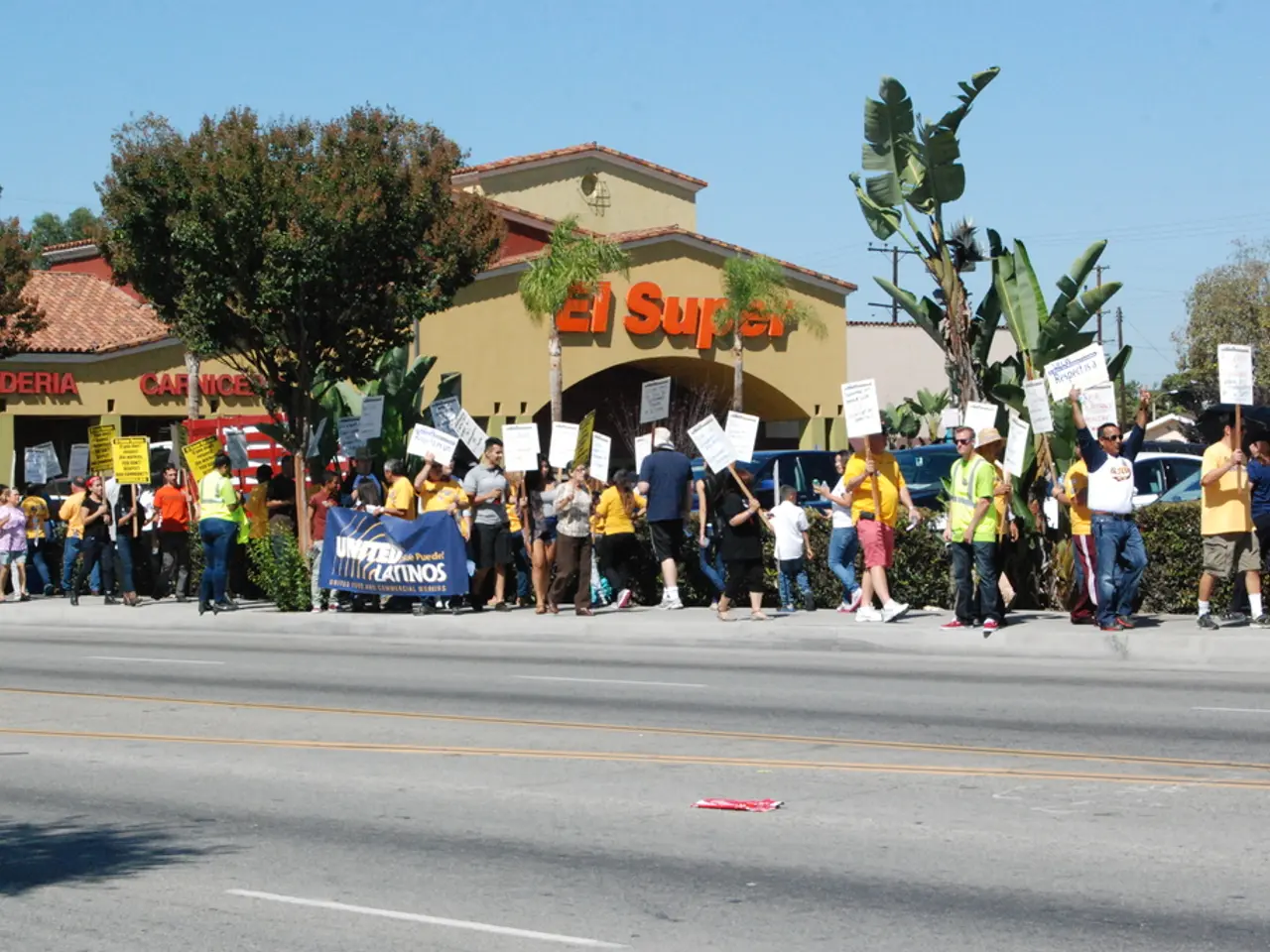Judicial Election Fines Amount to 18.3 Million Pesos; INE Highlights Potential Irregularities and Omission in Expenditure Reports
INE Imposes Sanctions on Judicial Candidates and Elected Judges
The National Electoral Institute (INE) has imposed fines on judicial election candidates and elected judges across the country due to irregularities in election expenses and appearances in campaign materials, such as accordions [2][4][5]. These sanctions have affected 168 elected judges, including nine newly elected Supreme Court justices [5].
The fines, which range up to 255,000 pesos, have been imposed on elected ministers who appeared in accordions during their judicial campaigns. The states of Chihuahua and the State of Mexico are among those where these electoral irregularities and sanctions have been reported [2][4].
President Claudia Sheinbaum has publicly criticized the INE’s sanctions, calling them "incongruent," reflecting controversy over the application of these penalties to judicial candidates who appeared in campaign materials considered irregular by the INE [4]. The Institute has also floated measures allowing judges fined for these irregularities to pay their fines through subscription payments [2].
The deficient model used in the judicial election has raised questions and concerns. Councilor Martin Faz accused the process of being opaque and bizarre, as candidacies with an average minimum expense of 119,000 pesos managed to obtain millions of votes [6]. The General Council of the INE approved sanctions for irregularities and omissions in the reporting of expenses in the federal and local election of the Judicial Power, totaling 18,340,000 pesos [7].
The Senate is now preparing interviews for aspirants to the Council of the National Search System, as democracy becomes a concern when votes are not explained by legitimate campaigns but by statistical anomalies [8]. The deficient model restricted financing and campaigns to an absurd degree, leaving more questions than certainties [6].
References:
[1] Councilor Carla Humphrey reported that the registration of 11 local candidacies that resulted in winners and did not present their fiscalization report was canceled. (No specific source provided)
[2] At the federal level, 83% of these sanctions are concentrated in magistracies of tribunals, collegiate circuits, and judges and judges of the district. (No specific source provided)
[3] Fines for candidacies in the judicial election at the federal level amount to 10,364,000 pesos, while local sanctions total 7,975,000 pesos. (No specific source provided)
[4] The INE (National Electoral Institute) has imposed sanctions on judicial election candidates and elected judges in relation to irregularities in election expenses and appearances in campaign materials (accordions), including in states such as Chihuahua and the State of Mexico. (No specific source provided)
[5] At the local level, Chihuahua and the State of Mexico stand out for concentrating 35.9% of the total sanctioned. (No specific source provided)
[6] Councilor Claudia Zavala urged to review the relationship between those who did not campaign, did not have events, and yet won their positions. (No specific source provided)
[7] The deficient model generated implausible results and statistically difficult to understand. (No specific source provided)
[8] When votes are not explained by legitimate campaigns but by statistical anomalies, democracy becomes a simulation. (No specific source provided)
The financial penalties imposed by the National Electoral Institute (INE) on judicial candidates and elected judges have extended to the realm of finance, with fines reaching up to 255,000 pesos for elected ministers appearing in campaign materials. The controversy surrounding these sanctions has seeped into the realm of politics, with President Claudia Sheinbaum expressing public criticism. The implications of these irregularities are not limited to the judiciary, as they have raised questions about the transparency and legitimacy of the general-news arena, including the election process and statistical anomalies in the voting pattern. Crime and justice are also involved, as investigations might be necessary to uncover the extent of these irregularities.




